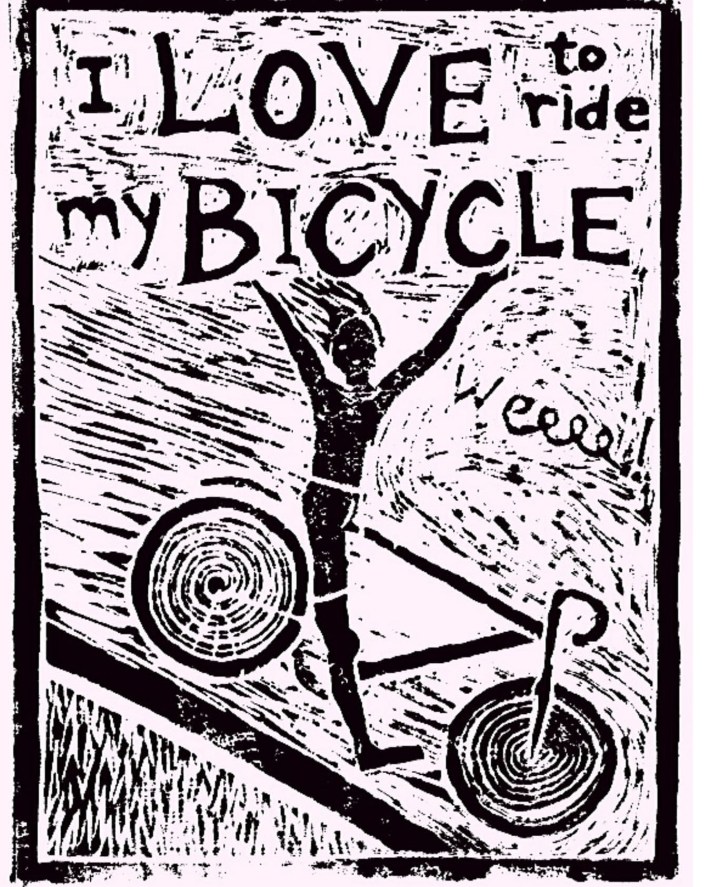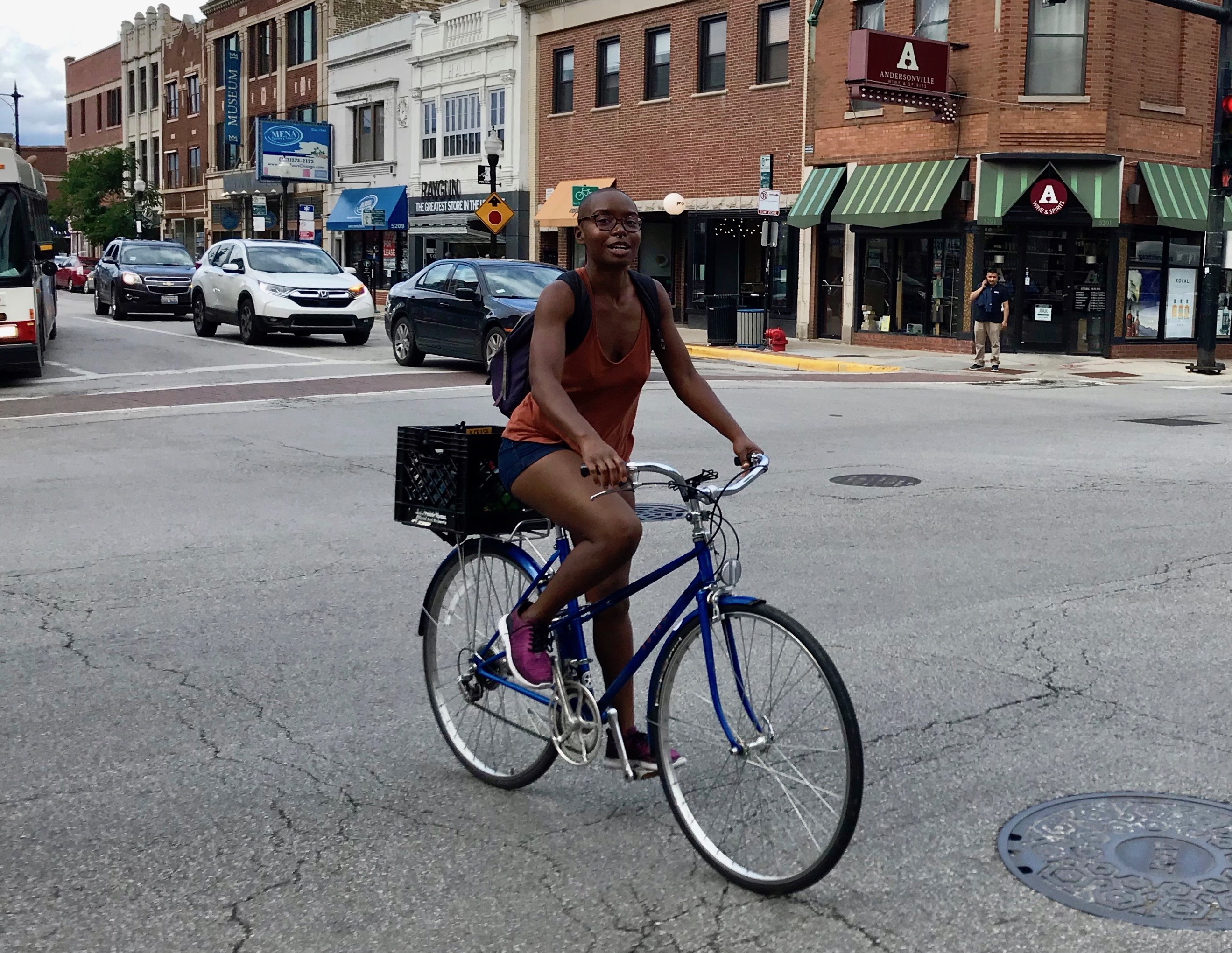I've had many beautiful and joyful memories of biking around the city this past summer, but I also have a number of biking memories that still cause anger, frustration, and sadness. Just the other day I thought about the parallels between me blaming myself or searching for meaning in the harassment I faced, and the constant self-blame I heard from clients who had experienced interpersonal violence when I worked as a therapist. Harassment from drivers is a form of interpersonal violence, and it's a shame that many Chicagoans don't see it as such.
While biking can be good for relieving stress, in some ways biking more frequently led me to have a more dysregulated nervous system, one that has trouble letting go of the energy produced by challenging, stressful situations. I found myself hyperaware of whether or not I could hear a car behind me, with my shoulders tensing as I braced myself for harassment, and my stomach would get queasy before some rides. I don't ever recall feeling this way when I drove a car or primarily rode transit.
Last week I was coming home on my bike, legally "taking the lane" (riding in the center of the of the travel lane to avoid opening car doors." About a block and a half from my apartment, a driver sounded her horn at me as we both approached a red light. I felt really irritated and annoyed at the unnecessary honk.
As we waited for the light to turn I found myself becoming more and more angry as the absurdity of the pointless honk kept spinning in my head. The light turned green and I pedaled home. The driver came too close and I held my hand out behind me to gesture for her to back off. I looked back and she has an annoyed look on her face. I turned back around and kept pedaling home. I noticed the driver turned down the alley behind my building.
Against my better judgement I followed her to one of the surface lots. I confronted her and screamed, “What's your problem?!” We had an exchange that involved her telling me she rides a bike too, me not wanting to believe her because then my anger would be even more misplaced, us both agreeing the city is failing people who bike, and me feeling utterly exhausted by my own rage.
I consider myself to be a fairly self-aware person. I try to recognize my growth spots and take responsibility for my emotions. Every time I utter or yell “a-hole” or “idiot” at a driver, I recognize I'm reinforcing the same behavior I want to see less of. I also recognize that people are doing their best in a system that is failing most of us. My anger at the driver was totally out of proportion to what she did. I recognize now that the real source of my anger that was the fact that our city and state fail to provide adequate infrastructure for multimodal transportation.

After taking some time for self-care after that heated and exhausting exchange, I reflected on how to move forward. In some ways that interaction represented the split in myself. I can continue to write about and report on the ways in which the system is failing us and report from a deficit model, or I can write from a place of nuanced optimism. I find anger and frustration exhausting, literally and figuratively. I have always tried to be a person who pours more energy into finding solutions rather than dwelling on problems. I'm personally going to be working towards seeing every driver as a future bike rider and/or transit rider. I am going to tap deeper into my joy, an emotion I find sustainable. I am going to ask myself often how we can shift the majority of car trips to walking, biking, and transit in a way that doesn't leave anyone out or behind, and work from that place. The same resources that got us into this car-centric mess can be repurposed for good.
A few months ago I came across this mini assignment on Twitter. I shared it on my personal social media accounts and a good number of my friends really resonated with it and felt inspired. I'm sharing it here in the hopes that it will it inspire you to act as well.
Mini assignment:
1) Think of a hopeful news story you'd want to read years in the future. Eg. "BEE POPULATION THRIVES"
My example: It's the year 2025: "40 percent of Chicagoans bike for transportation; transportation emissions and vehicle miles traveled are down across the U.S. due to massive investments in safe biking infrastructure and transit; food deserts have decreased 30 percent; and affordable housing units have increased in the city of Chicago by 40 percent."
2) Think of something you can do -- big or small -- to nudge our society in that direction.
3) Do that thing.
4) Tell a friend.






